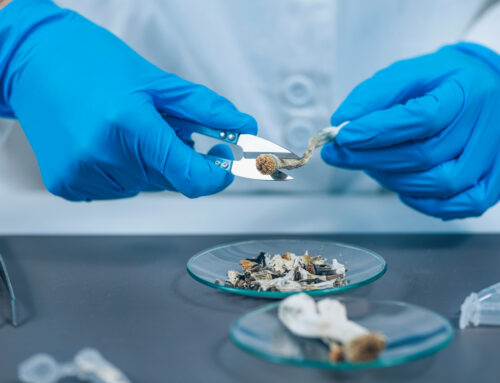Although people may think of crystal meth as a drug of the 1990s and early 2000s, the truth is that crystal meth use in New Jersey has been on the rise since at least 2019. Methamphetamine is often underestimated by new users who imagine they can get away with casual use. Being armed with the facts about meth is the best place to start.
Learn about crystal meth addiction in New Jersey as we bust some common myths and expose the truth. This Achieve Wellness and Recovery article will bring you up to speed on speed.
What is Crystal Meth Exactly?
Crystal methamphetamine, also known as crystal, ice, glass, or simply meth, is a powerful and highly addictive CNS stimulant. It is typically found as clear, glass-like crystals or a white crystalline powder. Users experience intense euphoria, increased energy, and heightened alertness. Meth may be snorted, smoked, or injected in solution. While it’s less common, meth may also be dissolved in a soft drink or taken in capsule form.
Why is Crystal Meth So Dangerous?
Crystal meth is especially dangerous for several reasons. A primary reason is the intense, short-acting high. This raises its potential for addiction and makes compulsive, repeated use common. People who begin as “casual users” often underestimate the drug and imagine they can keep the upper hand and control their use. They look at hardcore users who have lost teeth and are emaciated with skin lesions and say, “That would never happen to me!” But all too often, it does.
While the “stealth addiction” factor is a big part of the danger of crystal meth, it’s just the beginning. Other factors that contribute to the risks of meth use include:
- Psychotic episodes and bizarre behavior that get people into serious trouble.
- Tremendous stress on the body, especially the heart and brain.
- Combined with other drugs, it makes overdose more likely.
- It can be especially dangerous when combined with alcohol.
- Buying meth means spending time around users and dealers, which is dangerous itself.
Myth vs Truth: What You Might Not Know About Crystal Meth
Unfortunately, there is a fair amount of misinformation out there about crystal meth, and it is causing people to take unnecessary risks that they probably wouldn’t—if they had the facts.
Let’s bust some of the most common myths about crystal meth addiction.
Myth: There Aren’t Withdrawal Symptoms with Crystal Meth
Truth: Crystal meth addiction sets in relatively quickly, and tolerance develops quicker than you probably think. That means it takes more and more meth to get the same effect. While suddenly stopping meth doesn’t cause the same physical withdrawal symptoms as opioids, there is most definitely a physical and mental aftermath that follows use when you stop. Common symptoms of these “comedowns” include severe depression, muscle weakness, fatigue, and anxiety. These can last for a week or more. The depression and low energy can persist for several weeks in regular users and is a major cause of meth relapse.
Myth: Meth Use Doesn’t Have Side Effects
Truth: Crystal methamphetamine (meth) is a potent substance with a high risk for misuse. Side effects include nausea, vomiting, diarrhea, violent behavior, seizures, anxiety, heart attack, seizure and death. Meth isn’t a joke, and it’s not a drug that most people can use “casually” for long. Don’t kid yourself. Don’t imagine that you have some kind of magical willpower or iron will that no one else does and “can stop anytime you want”. These are all just lies we tell ourselves.
Myth: You Cannot Overdose on Meth
Truth: You can overdose on virtually any drug (YES, even THC/marijuana). Crystal meth overdoses are seen from Cape May to Tom’s River. No South Jersey community is safe from meth, unfortunately. Overdose doesn’t only apply to using enough of a drug that it causes death. All “overdose” means is taking much more than “normal’ or intended. So much that you get extreme and generally unwanted side effects. It is VERY possible to overdose on meth. It happens all the time.
Myth: Meth Makes You a Better Talker or More Productive
Truth: Meth doesn’t enhance productivity or social skills. In the short term, it accelerates the central nervous system, but this is an unnatural, unsustainable state of being. Crystal meth can cause permanent brain damage, severe weight loss, hair and tooth loss, skin lesions, and psychotic symptoms, and that’s just the start. People are often enticed by their first few experiences with lower doses of crystal meth and imagine they can control and moderate their use. Make no mistake—meth is highly addictive, and virtually no one can control their use for long.
Myth: Meth Users Can’t Benefit from Treatment Due to Brain Damage
Truth: While meth can cause brain damage, treatment programs like ours exist to help users overcome crystal addiction. There is no such thing as someone who is “too far gone” on meth to recover. That is one of the more damaging myths out there, in fact. The best indicator of whether or not someone can recover from meth addiction is NOT how much meth they use, whether they smoke, snort, or inject it, or even how long they’ve been using it. It’s willingness. It may sound corny or sentimental—but it’s 100% true. The people who recover from meth addiction and build lasting recovery are the ones who want to get sober and are willing to do whatever it takes. With the right help—those people can get sober and stay sober.
Achieve Freedom from Meth Addiction in New Jersey
They say crystal meth addiction is one of the toughest substance use disorders to beat. There may be some truth to that—but we have helped hundreds of people beat addiction to meth and other drugs to build lasting recovery.
If you or someone you care about is addicted to meth or any other substance — Achieve Wellness & Recovery can help turn the tide. Addiction to crystal meth does not need to be a one-way road to self-destruction.
We can’t help if you don’t call.
Call us now: (833) 680-0142
You can also click here to find out how our program can work with your insurance.








